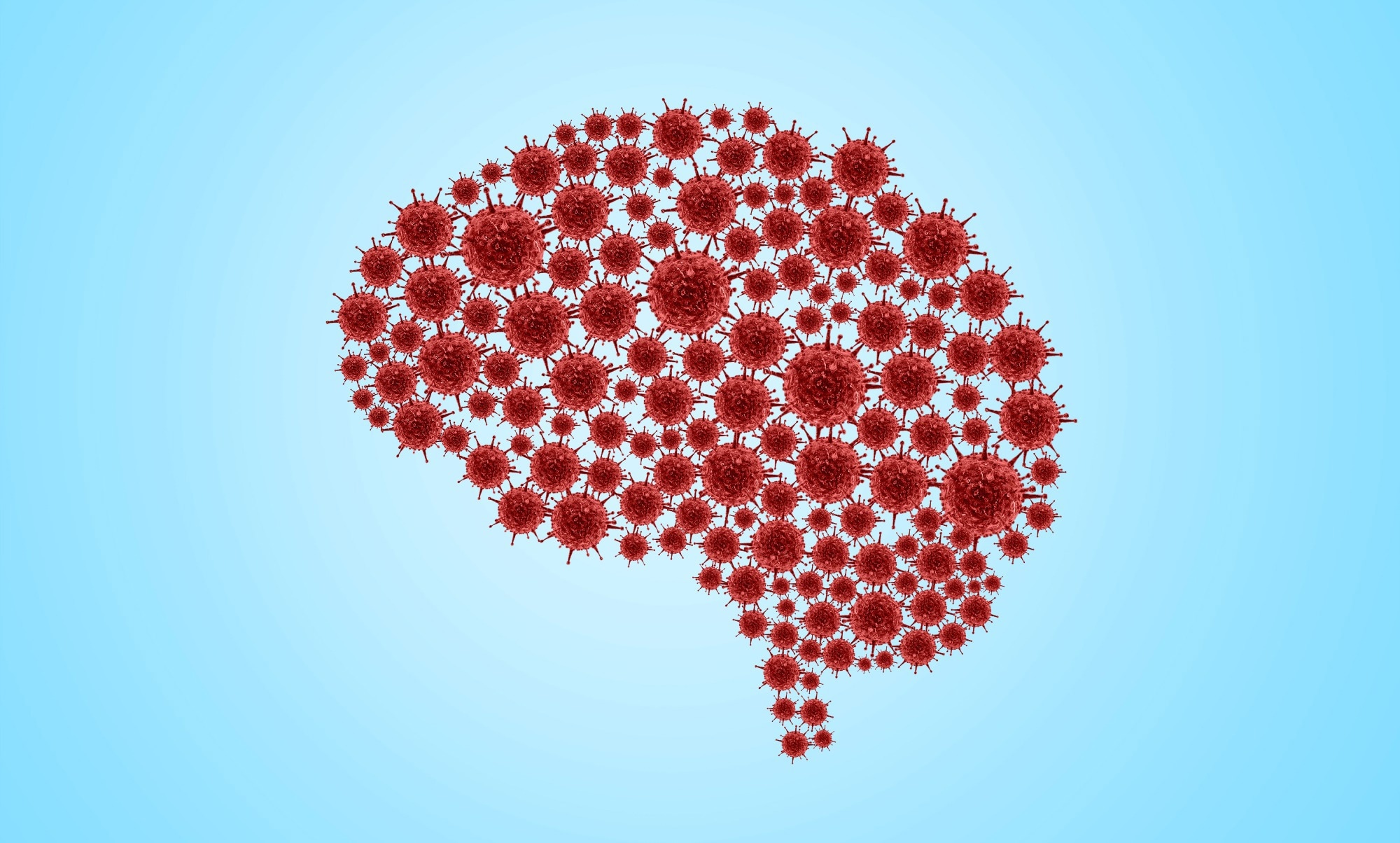In a recent study published in the journal Nature Neuroscience, researchers in Spain described the effectiveness of a modified vaccinia virus Ankara (MVA) vector severe acute respiratory syndrome coronavirus 2 (SARS-CoV-2) vaccine candidate in protecting against SARS-CoV-2 infection in the brain using a mouse model.
 Study: Full protection from SARS-CoV-2 brain infection and damage in susceptible transgenic mice conferred by MVA-CoV2-S vaccine candidate. Image Credit: DOERS / Shutterstock
Study: Full protection from SARS-CoV-2 brain infection and damage in susceptible transgenic mice conferred by MVA-CoV2-S vaccine candidate. Image Credit: DOERS / Shutterstock
Background
Although coronavirus disease 2019 (COVID-19) has primarily been associated with respiratory symptoms, neurological manifestations of the infection such as cognitive impairment, anosmia, ageusia, dizziness, encephalopathy, and ataxia, have also been observed in many patients. Cerebrospinal fluid samples from COVID-19 patients and brain autopsies from patients who succumbed to the disease have revealed the presence of SARS-CoV-2, indicating a direct infection of the central nervous system (CNS). In addition, studies in animal models such as ferrets, hamsters, and non-human primates have detected SARS-CoV-2 in their brains. Severe COVID-19 has been associated with neurovascular pathology, neuronal damage, and elevated biomarkers of cerebral injury.
While the COVID-19 vaccines currently in use have successfully reduced the severity of SARS-CoV-2 infections and hospitalization requirements, their effectiveness in preventing the spread of SARS-CoV-2 into the CNS or protecting against cerebral infection is unknown. Considering the number of neurological complications experienced by COVID-19 patients during the infection and after recovery in cases of long COVID, it is vital to explore vaccines that could protect from SARS-CoV-2 cerebral infections.
About the study
In the present study, the researchers examined the efficacy of an MVA vector vaccine expressing the SARS-CoV-2 spike protein (MVA-CoV2-S), which, in previous studies by the same team of researchers using mice, hamster, and rhesus macaque models, had induced spike protein specific long-term humoral and memory T cell responses and protected against morbidity, pathology, mortality, and cytokine storm. Keratin 18-human angiotensin-converting enzyme-2 (K18-hACE2) mice susceptible to SARS-CoV-2 infections were used to study the spatiotemporal spread of the virus in major regions of the brain, neuronal cell death, and associated pathological alterations.
To first characterize SARS-CoV-2 infection in the brain, K18-hACE2 mice were intranasally inoculated with SARS-CoV-2 and analyzed for immunohistochemistry against the nucleocapsid protein at two, four, and six days after the infection. Additionally, the neural density in the hypothalamus, hippocampus, and cortex was quantified to understand whether severe SARS-CoV-2 infection causes neuronal death.
After the neuropathology and spatiotemporal spread of SARS-CoV-2 in the K18-hACE2 mouse brains were characterized, the efficacy of the MVA-CoV2-S in protecting against SARS-CoV-2 infection in the brain and neuronal damage was evaluated. K18-hACE2 mice were intramuscularly immunized with one or two doses of the MVA-CoV2-S vaccine at a 28-day interval. On the 63rd day, the mice were intranasally challenged with SARS-CoV-2. The positive control consisted of K18-hACE2 mice immunized with two doses of a wild-type empty MVA vector and challenged with SARS-CoV-2. Four days after infection, the mice were euthanized, and their brains were extracted and processed.
Additionally, a second study involving MVA-CoV2-S vaccinated mice that survived the SARS-CoV-2 infection was conducted to determine the vaccine's efficacy in protecting against SARS-CoV-2 reinfection. The mice were euthanized six days after the second SARS-CoV-2 challenge, and the brains were extracted for pathology observations. Immunohistochemical analyses to detect SARS-CoV-2 nucleocapsid protein in different regions of the brain were conducted during both experiments to confirm SARS-CoV-2 cerebral infection.
Results
The results indicated that SARS-CoV-2 replication in the brain caused neuronal loss, vascular damage, and glial activation in K18-hACE2 mice. However, one or two doses of the MVA-CoV2-S vaccine granted complete protection against cerebral SARS-CoV-2 infection during the first round of infection and reinfection. The vaccine-induced immunity successfully prevented the replication of the virus in all regions of the brain and neuronal damage.
The histological analyses used to characterize cerebral SARS-CoV-2 infections revealed that the amygdala, hypothalamus, and basal forebrain were the regions to be infected first. The olfactory bulbs only exhibited mild SARS-CoV-2 infection at four days from infection, and severe viral replication could only be detected six days after infection, by which time the infection had spread to most regions of the brain. Significant levels of neuronal cell death were also observed, suggesting that viral replication in the brain predominantly occurs in the neurons.
These results corroborated those from other studies where the olfactory bulbs of patients who had died a few days after SARS-CoV-2 infections did not reveal significant levels of SARS-CoV-2 replication. Considering the fact that the hypothalamus, where viral replication was detected first and at the highest levels, also has fenestrated blood-brain-barrier capillaries, the hematological route for the entry of SARS-CoV-2 into the CNS seems more likely than the olfactory route.
Conclusions
Overall, the results indicated that the COVID-19 vaccine candidate MVA-CoV2-S showed promising efficacy against cerebral SARS-CoV-2 infection in mice. One or two doses of the vaccine were seen to protect SARS-CoV-2-challenged mice from infection, replication, neuronal damage during primary infection, and reinfection.
Journal reference:
- Villadiego, J., García-Arriaza, J., Ramírez-Lorca, R., García-Swinburn, R., Cabello-Rivera, D., Rosales-Nieves, A. E., Álvarez-Vergara, M. I., Cala-Fernández, F., García-Roldán, E., López-Ogáyar, J. L., Zamora, C., Astorgano, D., Albericio, G., Pérez, P., Muñoz-Cabello, A. M., Pascual, A., Esteban, M., López-Barneo, J., & Toledo-Aral, J. J. (2023). Full protection from SARS-CoV-2 brain infection and damage in susceptible transgenic mice conferred by MVA-CoV2-S vaccine candidate. Nature Neuroscience, https://doi.org/10.1038/s41593-022-01242-y, https://www.nature.com/articles/s41593-022-01242-y